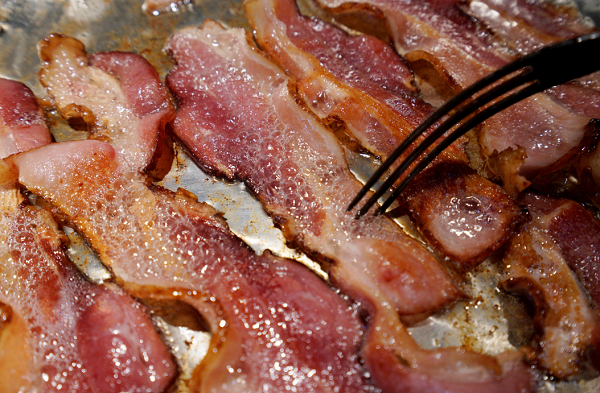Why Is Bacon Bad For You? Study Reveals Processed Meat Increases Dementia Risk
A new study done by researchers at the University of Leeds’s Nutritional Epidemiology Group found eating processed meats--such as several slices of bacon--each day could increase an individual’s risking of developing dementia.
The study, which was published on Monday in The American Journal of Clinical Nutrition, revealed that diet could be a factor in the rising number of dementia diagnoses.
Although the consumption of meat has been linked to dementia in the past, the study found specific types of meats and the amount of consumption could be linked to the degenerative disease.
Out of the 493,888 participants observed, researchers found that consuming a 25g serving of processed meat each day is linked to a 44% increased risk of dementia, KSL reports.
However, eating unprocessed red meat could lower the risk of developing the disease. Scientists found subjects who consumed 50g of unprocessed meat like beef or pork per day were 19% less likely to have dementia.
The data taken from UK Biobank subjects between 2006 and 2010 found that those aged between 40 years old to 69 years old, who ate processed meat, had the same risk of developing dementia as those who had a family history of the degenerative disease.
In further data analysis of the participants, researchers identified 2,896 cases of all-cause dementia, 1,006 cases of Alzheimer’s disease, and 490 cases of vascular dementia.
“Anything we can do to explore potential risk factors for dementia may help us to reduce rates of this debilitating condition. This analysis is a first step towards understanding whether what we eat could influence that risk,” one of the study’s authors, Professor Janet Cade, noted.
Despite the findings in the study, scientists insisted further research needs to be done before a definitive link between processed meat and dementia can be drawn.

© Copyright IBTimes 2025. All rights reserved.






















